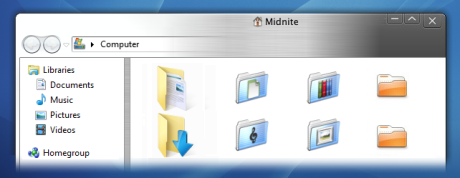Get off your Windows high horse: Try something new

The vast majority of students use Windows, with a small selection using Mac's and a very niche number using a Linux variant. But what good is it if you are going into a working environment and they don't use the software you've always been used to?
It's not what you use; it's how you adapt. In the wise words of a good friend and a PhD student of bio-mechanical engineering:
"Some people are just Windows people. Some people are just Mac people. Of course there are people who get muddled up in between, but there's no harm in not making your mind up. It's pretty much as simple as that".
I can't really disagree with that statement. But the conversation progressed to the working world, in that though she was brought up through school and university to use Windows, within the first few weeks of being in the lab she had to use a Mac.
She had no choice but to adapt. And seeing as she had never used a Mac before, she found it difficult to escape the Windows-mindset.

Within a few days, she got her head around it and could function at full speed, albeit finding new tools and tricks that she found previously in Windows. But nevertheless she adapted - rather quickly and efficiently. In such a short space of time, she realised how similar the experiences actually were, and that the ability to adapt to her new environment was already established from prior knowledge.
Even though I had never used Ubuntu before, or any Linux operating system for that matter, I went 48 hours into an environment I had never been in before, and made it to the end with a great sense of admiration for the open-source competitor.
While I wouldn't necessarily use it as my main production machine for writing essays and suchlike, when you're on a long haul flight from London to New York, running Ubuntu does boost the battery life to hold out for the long run.
My argument is simple. Students of today are usually in two firm camps: Windows users and Mac users. Neither is right nor wrong. It doesn't matter what you use or how you use it. What is important is that the working world may not be so giving to your pre-existing needs.
So though you shouldn't necessarily permanently deviate from your operating system to another, you should branch out. Take the plunge and go and visit an Apple store, or a Microsoft store for that matter. Pick up something you haven't used before and have a play. Take a look, use it for a while, see what you can do with it, browse, write, and experiment.
The same with Linux. If you can, crack open a virtual machine and install Ubuntu and have a root around. Don't be disheartened by the confusing command lines or the weird looking interface. Really give it a go, and enjoy the experience of using it.
The skill you will learn is not how to use another, alien operating system but the ability to adapt. It's like a right-handed person writing with their left hand: the knowledge is there, the skill is pre-existing but the ability to persevere and to adapt to the new way of working is absolutely vital.
Plus - if you have on your resume that you can work with either Windows, Mac or Linux, then that's going to make you far more attractive in the workplace as the skills are there and the company won't have to shell out precious money to invest in training "just another graduate student".
God only knows what you'll face in the working world, so get used to everything you can. Granted, it probably won't be Mac OS X or Linux, but can you afford to take the risk?
It all boils down to experience and the ability to change.